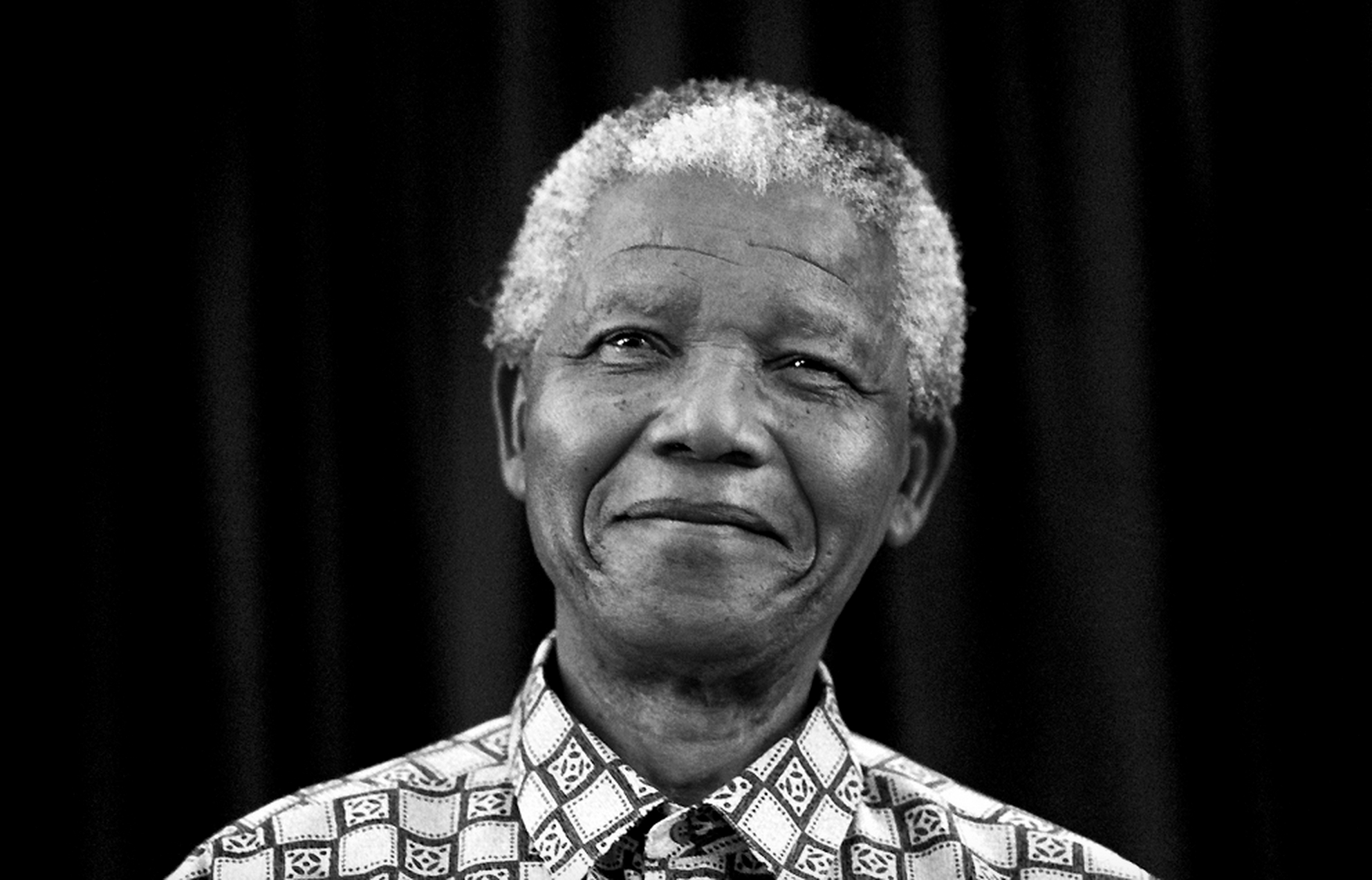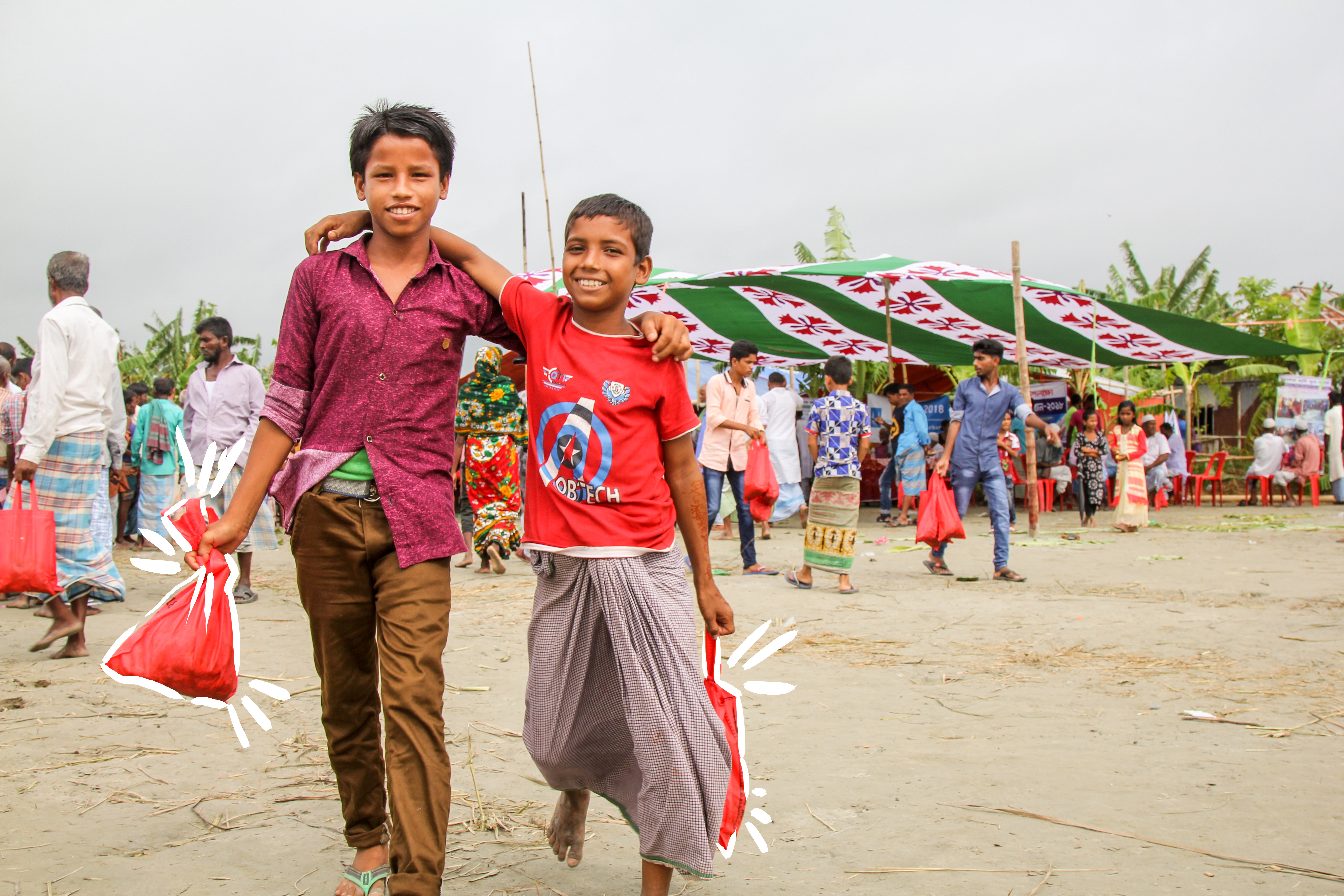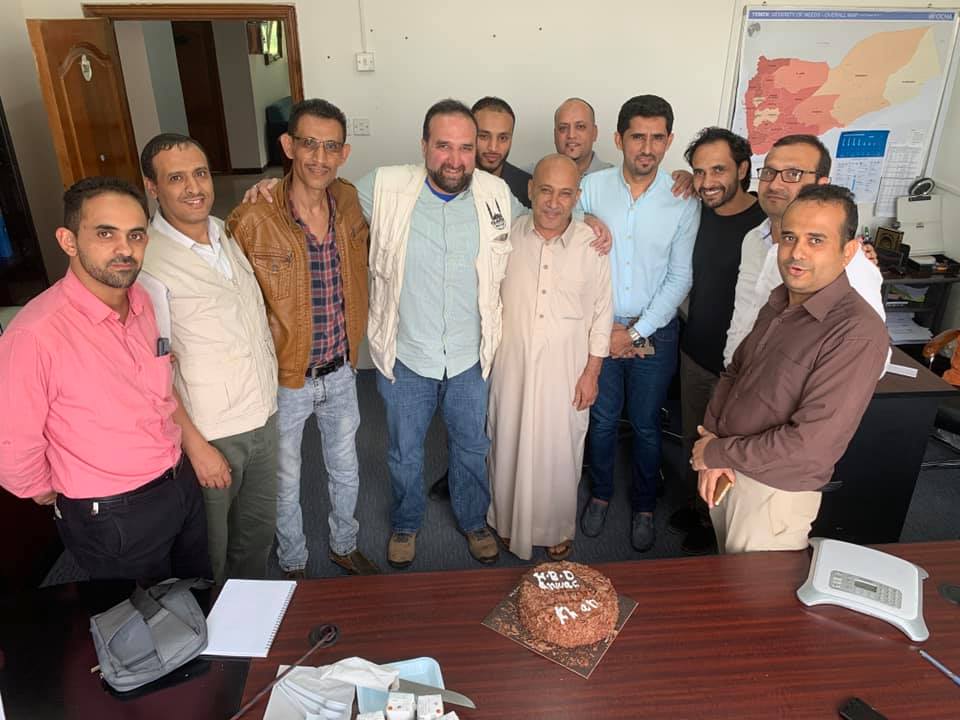Islam is part of the solution, so Stand up for Justice
by Shahin Ashraf
Shahin Ashraf, head of global advocacy for Islamic Relief Worldwide, reveals the heart of an upcoming campaign to secure justice for Muslim women and girls, and how you can join the movement come November.
Islam brought clear rights for women, affirming the value and individual personhood of every woman, their right to life, education, ownership of wealth, choice in marriage and divorce, and unhindered access to mosques and sacred spaces. The last sermon by the Prophet Muhammad (PBUH) was a reminder to uphold and respect the rights of women.
Islam is also unambiguous in forbidding injustice in any form.
Yet, injustice against women and girls is perpetrated in Muslim-majority communities around the world today. I believe this is because, wherever there are people, we typically find sexism, too. Within societies, sexism is frequently echoed by and attached to social institutions: law, politics, and religion.
So, like other major religions, Islam grapples with theological interpretations affecting women.
Islam isn’t “part of the problem.” Islam is part of the solution.
Contrary to its teachings, Islam is often used to try to justify injustice. This leads some to assume the faith is “part of the problem” when, in truth, sexism in society has allowed these myths and injustices to develop.
Harmful cultural practices masquerading as religious doctrine are therefore one of the most challenging issues in the Muslim world. And in 2017, following training on gender, it became starkly apparent that women and girls weren’t even represented in theological and religious discourses about such an important issue.
My colleagues and I asked whether an alternative reality is possible: Could there be a world in which Muslim women and men, girls and boys alike have the same opportunities, the same protection, and their voices equally heard? Can we create a movement of individuals and organizations working towards justice for Muslim women around the world? Together, could we uplift female leaders and facilitate access to religious literacy?
It is essential for meaningful change.
Women face injustice and discrimination
Here, at Islamic Relief, we know all too well the imbalance in resources, security, and opportunities between men and women. In poorer countries in particular, women and girls face poverty, injustice, and discrimination simply because of who they are. Although, wealthier countries are not immune: there too, Muslim women and girls are denied education or a career, suffer violence and abuse, and are shut out of conversations on critical issues.
Muslim women and women of color are underrepresented in our Muslim institutions and also within wider society. We know that norms and practices are shaped and influenced, not only by tradition and culture, but also by many other factors. Changes in technology, macro-economic development, climate change, and global politics all have an impact.
Developing a ‘Declaration’ for positive change
Over the next five years, we developed what we call a Declaration. First, we examined research on the intersections of faith and human rights, including Islam and gender justice, by Muslim scholars, academics, international organizations, and non-governmental organizations including Islamic Relief.
Only a truly participatory approach would produce a Declaration that was for us, and by us. So we consulted Muslim stakeholders around the world, across sectors and at different levels: international organizations, faith actors, civil society, business and academia, and community and youth organizations. We also took care to include the voices and perspectives of female Muslim scholars, as well as women’s groups and activists.
From these consultations emerged calls to action that address key gender injustice issues within six themes:
- Economic justice and equity in the family
- Civil and political rights
- Education
- Protection
- Health
- Leadership.
The calls to action add cultural and religious relevance and address key challenges against a backdrop of rising Islamophobia, conflict and anti-immigrant sentiment– all of which exacerbate injustices against Muslim women and men.
Lack of religious literacy and social norms have affected our communities, the way we treat women and girls, and the way in which we do or don’t hold men accountable. It has also affected the participation of women in decision making and contributed to casual discrimination and sexism against women and girls in many parts of society.
A movement for justice guided by the light and lessons of our faith
Islamic Relief Worldwide is already acting: our global Gender Audit resulted in 10 commitments which we are embedding throughout our structures and processes.
But we can’t bring about justice for women and girls alone, so we are launching the Stand Up for Justice Campaign in November to urge Muslim women and men to stand up for what Islam really says about the God-given rights of women and girls. In the Qur’an, Surah An-Nisa (“The Women”) tells us to “Stand up for justice” (4:135).
Through this campaign, we bring this powerful verse to life: Women and men, guided by the light and lessons of our faith, supporting, respecting, and uplifting one another to lead safe and dignified lives by ending injustice against women and girls.
How you can Stand Up for Justice
So what are we asking you to do?
- SIGN AND SHARE: Encourage people to sign the Declaration
Sign up to our Declaration of Justice for Women and Girls in Islam, and share campaign videos and other content on social media to tell the world. Encourage your friends and relatives to sign up, too.
By signing, you’ll play your part in affirming that Muslims care about women’s rights and help us to increase religious literacy about women’s rights in Islam. You’ll also put pressure on scholars and global religious leaders to stand up for women’s rights. We’ll present the signatures and the Declaration to global Muslim leaders, urging them to sign and make their own public commitments to stand firmly for justice for Muslim women and girls.
- Together lets SHOW the world WHAT’S POSSIBLE: Showcase how Islam enshrines the rights of women and girls
Together, we can show positive examples of Islam, faith leaders, and Muslim women and men as a force for positive change in women’s rights worldwide. Share on social media a photo of your mother, father, sister, brother, daughter, or son – or maybe a faith leader – who is making a positive difference in the lives of people around you, showing that these heroes are the courage we want to see in this world.
Together, we will amplify the voices of Muslim women on issues that affect their lives and their hopes for the future. These are our Sheroes: our mothers, sisters, daughters, friends. Tell the world about her selfless work and send her photo to us, so that she becomes an example of a new generation of changemakers.
Together, we will promote religious literacy by challenging myths about Islam and women on issues such as equality, education, employment, female genital mutilation/cutting (FGM/C), early marriage, and domestic violence.
- SPREAD THE WORD: Encourage conversation about Islam and women’s rights – and challenge those with the power to make a difference.
Here are some ways you can stimulate discussion:
- At the mosque – deliver a khutbah or create a prayer space for women and girls;
- At school – hold an assembly about Islam and girls’ rights, or about issues affecting Muslim girls around the world;
- At university – organize an Islamic Society debate;
- At home – challenge your relatives on their attitudes;
- With your friends – call out friends on harassment or everyday sexist views;
- At work – urge managers to increase gender balance at senior levels.
Let us hold a mirror up to ourselves. Let’s remember that when a woman speaks up, she is speaking from a shared history, one built on resistance amid a backdrop of collective marginalization. Let’s consign such injustice to the history books. Together, we will build a just world in which everyone – women and men, girls and boys – can fulfill their God-given potential. Sign the Declaration, join the movement, and ‘Stand up for Justice’, together!



